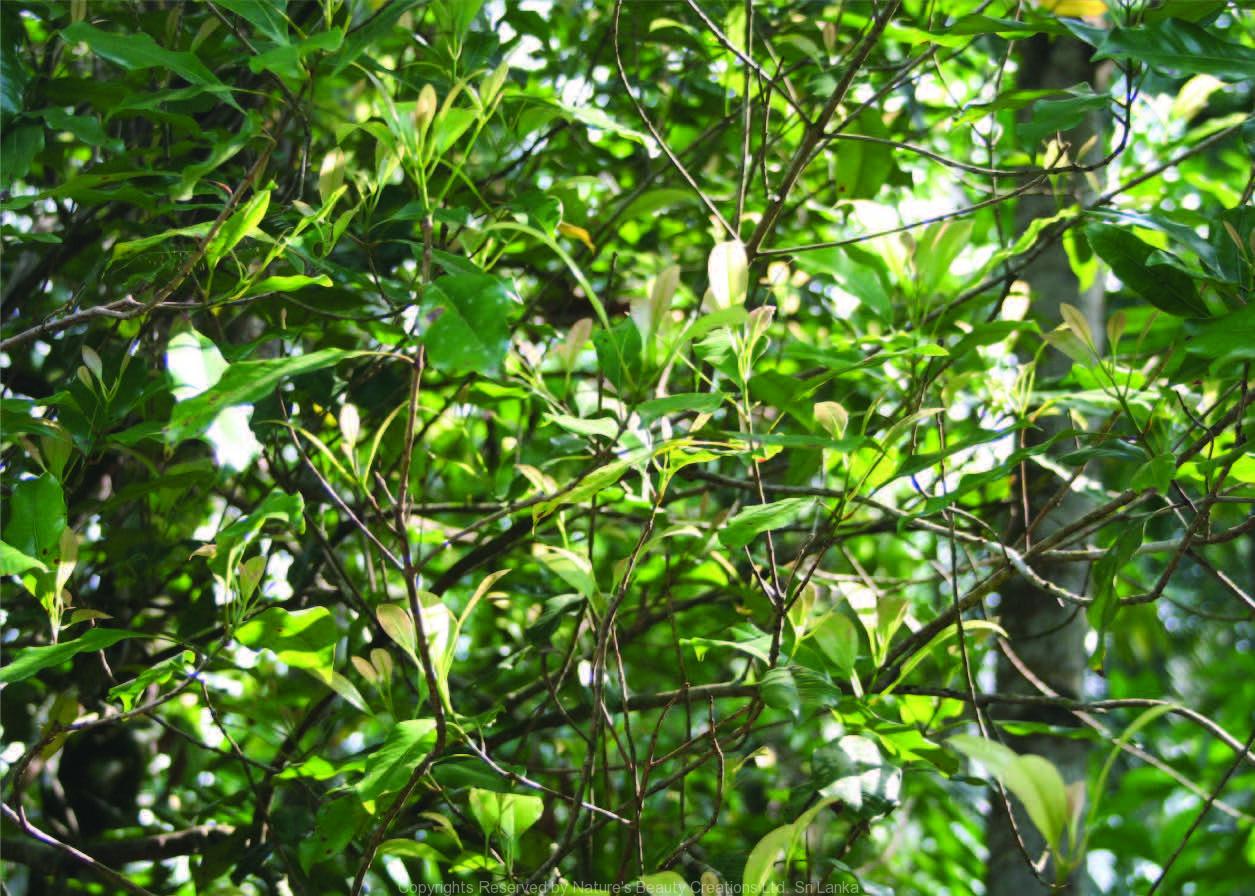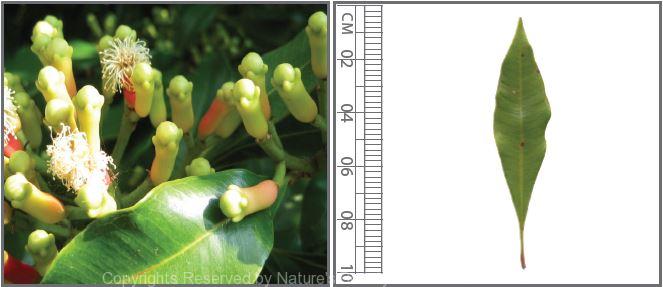

Traditional Knowledge
Useful plant parts :
Flower bud
Uses in traditional medicine :
- A tea spoon infusion of the dried immature flower buds is given thrice a day for indigestion and throat infections in children
- Buds act as a carminative, stomachic and stimulant
- Used to allay thirst and for treating hiccoughs, asthma, diarrhoea, diseases of the heart, urinary diseases and toothache
Scientific Research
Chemical constituents:
Phenylpropene: eugenol and its derivatives, sesquiterpene: β-caryophyllene from essential oil of buds; quinone: biflorin, flavonoids: kaempferol, rhamnocitrin, myricetin, phenolic acids: gallic, ellagic acids, terpenes: oleanolic acid, carvacrol, thymol and trans-coniferyl aldehyde and cinnamaldehyde from buds
Bioactivity :
Methanol extract of dried buds: antibacterial against periodontal pathogens; Clove oil: antioxidative, antibacterial, cytotoxic; aqueous and ethanol extracts of flower buds: inhibit histamine induced hypersensitivity, sustains increase in sexual activity; phenylpropenes: antimutagenic; infusion of unopened flower bud: apoptogenic, antiproliferative
Clinical:
References : Cai, L. and Wu, C. D., (1996), Compounds from Syzygium aromaticum Possessing Growth Inhibitory Activity Against Oral Pathogens, Journal of Natural Products, 59, 987-990. Chaieb, K. et al., (2007), The Chemical Composition and Biological Activity of Clove Essential Oil; Eugenia caryophyllata (Syzigium aromaticum L. Myrtaceae): A Short Review, Phytotherapy Research, 21, 501–506. Banerjee, S. et al., (2006), Clove (Syzygium aromaticum L.), a potential chemopreventive agent for lung cancer, Life Sciences & MedicineCar- cinogenesis, 27(8), 1645-1654. Kim, H. M. et al., (1998), Effect of Syzygium aromaticum extract on immediate hypersensitivity in rats, Journal of Ethnopharmacology, 60, 125–131. Miyazawa, M. and Hisama, M., (2003), Cytotoxicity of clove (Syzygium aromaticum) oil and its major components to human skin cells, Journal of Agricultural Food Chemistry, 51(22), 6413–6422. Prashar, A. et al., (2006), Antimutagenic Activity of Phenylpropanoids from Clove (Syzygium aromaticum), Cell Proliferation, 39(4), 241–248. Tajuddin, (2004), Effect of 50% ethanolic extract of Syzygium aromati- cum (L.) Merr. & Perry. (clove) on sexual behaviour of normal male rats, Complementary and Alternative Medicine, 4, 17.
Copyrights Reserved By
Natures Beauty Creations




